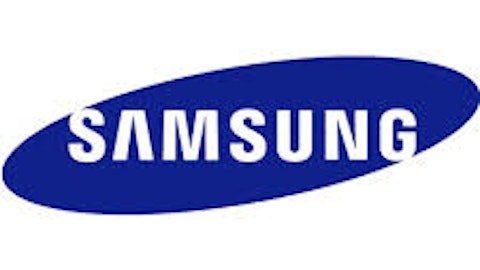Yahoo! Inc. (NASDAQ:YHOO) has been on a tear with acquisitions recently. The company is heavily disciplined about cutting back on operating costs, returning cash to shareholders, and driving user-driven metrics to its websites. It seems to be on track with meeting many of its goals as CEO, Marissa Mayer, has been out on a web 3.0 land grab.
The CEO’s most recent acquisition
Yahoo! Inc. (NASDAQ:YHOO) just recently acquired Xobni. The company released an application/program that allows a user to effectively centralize all of their data and contacts within a single location. This is becoming increasingly important because it has become difficult to centralize contact information between all of the different social networks, e-mail clients, and personal contact lists that users create.

In its most recent shareholder meeting, Yahoo! Inc. (NASDAQ:YHOO) reported that it was able to grow mail user activity by 10% (no time frame was mentioned). However, the integration of Xobni with Yahoo! Mail will improve the amount of user activity on Yahoo! Mail.
Investors should remain fairly optimistic because Mayer continues to deliver on her promise to improve the amount of display-advertising revenue.
How to position
For the most part, I am optimistic about Yahoo! Inc. (NASDAQ:YHOO)’s growth. The company plans to improve the amount of net operating income it generates from its operations. By Yahoo! improving its net operating income, the company is able to acquire more companies. The benefits are twofold because the company is now focused on buying innovation rather than depending on innovation from within. It’s more predictable to go and buyout talent than it is to groom it. After all, Facebook Inc (NASDAQ:FB) was invented by a small group of Harvard dropouts, not by International Business Machines Corp. (NYSE:IBM).
Analysts on a consensus basis estimate that the company will grow earnings by 13.7% per year over the next five years. The growth rate is fairly sustainable when considering the company’s disciplined approach to cutting costs, and its focus to improve the overall website experience of Yahoo! Inc. (NASDAQ:YHOO).
Will this ruffle Google’s feathers?

Source: Statista
Google Inc (NASDAQ:GOOG) is far ahead of the competition. Currently Mozilla Firefox and Google Chrome are the most dominant web browsers in the world. By default, Mozilla Firefox and Google Chrome will use Google search. This leads to better monetization opportunities for Google through Google AdWords. The Google AdWords business is currently growing, as the segment was able to report 18% year-over-year growth in the most recent quarter.
Google Inc (NASDAQ:GOOG)’s growth is also likely to be supplemented through Android. The Android operating system appeals to an overwhelming percentage of smartphone users across the world. Because of this, analysts have projected Google to grow sales by 41.2% in the current fiscal year, and 16.9% in the following fiscal year.
Yahoo’s! positioning improves
Investors should taper their expectations of Yahoo’s! future. What I mean is that Mayer’s strategy is aimed at gradually shifting the overall perception of Yahoo! Inc. (NASDAQ:YHOO) and its product platform. There won’t be a magic switch that will turn on a rapid increase in the usage of Yahoo! search or Yahoo! mail. The company is aiming to improve its position gradually against major competitors like Google Inc (NASDAQ:GOOG), Facebook Inc (NASDAQ:FB), and Bing.
Facebook is becoming an increasing threat to Yahoo! Inc. (NASDAQ:YHOO) because it offers a lot of the same services that Yahoo! provides. For example, a Facebook Inc (NASDAQ:FB) user can share pictures, videos, share blog posts, send e-mails, and chat all from one location. To do the same on Yahoo! a user would need a Flickr, Tumblr, Yahoo! mail, and Yahoo! chat account. To counter the negatives of having to be so far spread between all of these services is to improve the functionality of each — so that it can appeal to a specific niche — and to provide integration, by offering users the ability to log-in through Facebook, on to all of these applications.
In other words, Yahoo! Inc. (NASDAQ:YHOO) products are becoming an extension to what a user deeply desires, an improved version of what some may want to do. The only weakness in Yahoo’s! current strategy is in user-generated videos. The space is becoming increasingly competitive as YouTube dominates longer videos. Shorter video sharing is currently owned by both Vine (owned by Twitter) and Instagram video (owned by Facebook).
Instagram video has been a success in terms of stealing market share from Vine, but it is still far from monetization. Facebook Inc (NASDAQ:FB)’s growth will be primarily driven by its display advertising business going forward. For now analysts forecast that Facebook will grow sales by 32.2% in 2013, and 26.5% in 2014.
Investors should walk in with the expectation that Yahoo! Inc. (NASDAQ:YHOO) isn’t going to emphasize video as much, because YouTube has reached economies of scale that are extremely difficult to compete with, and short-video-sharing is dominated by the social networking giants. Instead, I believe that Yahoo! will focus on premium movie streaming through its potential acquisition of Hulu. Hulu is the only competitor in the space that has built up a content library and enough memberships to stay competitive with Netflix, Inc. (NASDAQ:NFLX)’s rapid growth.
Conclusion
Don’t expect Yahoo! Inc. (NASDAQ:YHOO) to rule the world with modest product improvements. Instead, expect the company to become an extension of what a user wants to do that cannot be done elsewhere. This will involve both a change in the perception of the brand and improvements in the quality of its services.
Going forward, Google Inc (NASDAQ:GOOG)’s market share may experience gradual declines, but for the most part it shouldn’t affect the company’s growth enough to taper optimism surrounding the stock. Likewise, Facebook Inc (NASDAQ:FB), will become the centralized web terminal for basic things like chat, blogging, and sharing.
The article Yahoo! Becoming an Extension of the Internet originally appeared on Fool.com and is written by Alexander Cho.
Alexander Cho has no position in any stocks mentioned. The Motley Fool recommends Facebook and Google. The Motley Fool owns shares of Facebook and Google. Alexander is a member of The Motley Fool Blog Network — entries represent the personal opinion of the blogger and are not formally edited.
Copyright © 1995 – 2013 The Motley Fool, LLC. All rights reserved. The Motley Fool has a disclosure policy.




